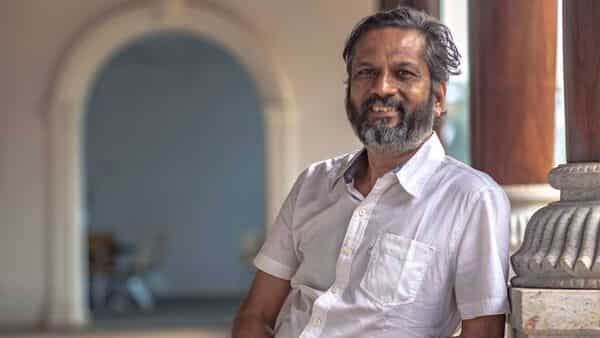[ad_1]
Zoho’s Sridhar Vembu has claimed that India’s thinking is dominated by what goes on in the US and UK.
In a series of tweets, he explained his claim focusing on the following factors – Economics, manufacturing decline, token-distribution jobs and their effect and cousin abroad syndrome.
“India’s thinking is dominated by English, which means it is shaped by what goes on in the US and UK. I will explore some consequences here, he wrote.
He started with, “First let’s come to economics. Both the US and UK are highly financialized, “post-industrial” or “post- manufacturing” economies.”
He explained that both US and UK run massive trade deficits in manufactured goods & export services to partly balance the goods deficit, but he said that the resulting net trade deficit is still huge and has kept growing.
Also Read: How does the US dollar control the global economy? Zoho CEO Sridhar Vembu explains
He further explained how these countries pay for this ever-growing deficit.
“They issue *bonds denominated in their own currencies* to pay for imports. This is very crucial and has allowed them to continue to issue debt far beyond what countries like India can do. This “privilege” came at the huge price tag of decimating their manufacturing sectors, he wrote.
Vembu also mentioned, Economists like Rajan think of US/UK manufacturing decline as the norm and advice India to seek to export services, to become more like them.
“The assumption is “IP/Finance jobs pay well and manufacturing jobs will disappear” even for India because that happened in the US/UK, he said.
He further explained, “They never questioned whether “IP/Finance pay well” is some kind of immutable law of economics or merely an artifact of running massive trade deficits for decades, which entirely distorted their domestic economies.”
Vembu also claimed that manufacturing decline created massive increase in inequality.
He wrote, “Manufacturing decline increased inequality by lowering real wages for former factory workers forced to seek alternative low end services jobs.”
He wrote that the finance industry benefited massively from recycling bonds issued to foreigners to domestic asset markets and so finance paid good wages.
“This recycling of trade deficits to domestic asset markets also caused massive asset bubbles in US/UK & mainstream economists celebrated that as increasing “wealth”, he wrote.
Vembu explained that asset bubbles increased inequality even further & it was already increasing due to manufacturing decline.
Indian-origin mainstream economists came of age during this era. Their entire conceptual framework, all their models, were dominated by these decades of US/UK experience. It is this experience we risk over-learning from in India.
Explaining the next factor, token-distribition jobs and their effect, Vembu wrote, US/UK created a huge number of “token distribution jobs” whose purpose is to create income to claim imported goods. Simply distributing printed money would have worked just as well, as demonstrated during the pandemic. He said that college majors like Psychology rose to feed these jobs.
He also explained that Indian elite has overlearned from the US/UK experience & India’s upper middle class kids want to spend lots of money getting degrees in basically bullshit (to get those “token distribution jobs” like their cohorts in the US/UK).
The Zoho CEO also mentioned another factor which is “cousin abroad syndrome.”
“What influences the educational choices of upper middle class kids in India? The cousin abroad syndrome. They want to emulate their cousins abroad and study Psychology, Sociology, Economics and not be caught dead studying uncool Mechanical/Electrical/ Aerospace Engineering, he wrote.
Concluding his statements, Vembu said that we have overlearned and overapplied the experiences of UK and US.
“The effect is subconscious & deep. It is in the very air we breathe, so to speak. We have to undo this distortion of our very thought patterns and that is hard. That is why I write,” he wrote.
Download The Mint News App to get Daily Market Updates.
[ad_2]
Source link

